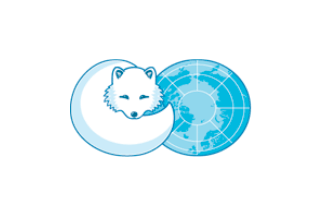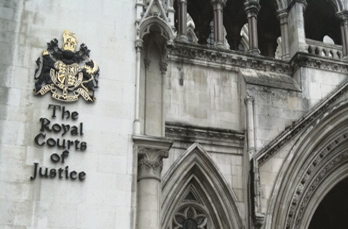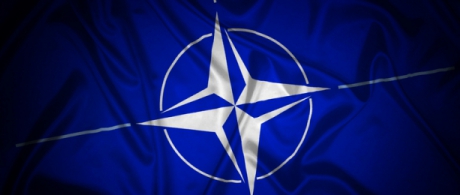Sarah Danruo Wang discusses Canada’s upcoming chairmanship of the Arctic Council and the major concerns that will pervade the Council’s agenda in 2013
The chairmanship of the Arctic Council will rotate to Canada in May 2013 for a two-year term. With participation from Canada, Denmark, Finland, Iceland, Norway, Russia, Sweden, and the United States, this intergovernmental forum also includes non-voting, permanent representation from indigenous peoples from respective arctic states. The reignited interest in the arctic in the early 1990s could be observed in the 1991 Arctic Environmental Protection Strategy (AEPS) that included mandates and four working groups for the eight arctic states to protect the environment and human security concerns. This was followed up with the Ottawa Declaration in 1996 that created the Arctic Council. Organizational activities formally commenced in 1998 following the Iqaluit Declaration that established rules, procedures, and mandates.
Keeping in mind that the Council is only a forum that does not keep its members in legal compliance, fifteen years on, it has sustained the dialogue and cooperation. It would be quite easy to generalize the Arctic from one vast region, once a frigid, nuclear backyard during the Cold War to the environmental romanticism that permeates the now expanded, post-Cold War security paradigm. Yet, the north is distinct in the national identities of each of the arctic states and is the home to a fraternal continuum of indigenous peoples. Furthermore, under the umbrellas of environmental protection, resource extraction, and maritime security, each of the participating countries has specific interests that they bring to the Arctic Council dialogue: from Canada’s human security development in the north to Norway’s protection of fisheries to Russia’s preoccupation with oil and gas reserves and maritime shipping routes. Old concerns with new ambitions will dominate the agenda for 2013, so here is a brief list of topics to expect from this year’s meetings.
Key concerns for 2013:
Territorial and maritime boundaries
The arctic region is definitely not the Wild West 2.0 and vestiges of the attitudes of manifest destiny seem to be subdued by the cooperative infrastructure provided by the Council. Yet, various arctic states have, in the past decade, submitted reports to the Commission on the Limits of the Continental Shelf (CLCS), to gain rights over the two hundred nautical miles allotted to each state that ratifies the United Nations Convention on the Law of the Sea (UNCLOS). Currently Russia is submitting its proposal as it wants access to petroleum resources beyond its border primarily to supplement its political economy. Canada’s report is due to CLCS in 2013 and Denmark’s in 2014. This “race” to claim what seems to be resource-rich continental shelf, as of now, does not seem inflammatory, and each state’s reasons do not seem to add up to a security dilemma. With Russia’s and Norway’s handling of the dispute over boundaries of the Barents Sea, cooperation over maritime boundaries will likely be handled in similar, cooperative fashion.
EU bid for permanent observer membership
Three of the member states of the Council; Denmark, Finland, and Sweden and the six non-arctic, permanent observer states; France, Germany, Netherlands, Poland, Spain, and the United Kingdom, are all members of the European Union which also happens to be awaiting permanent observer status for itself. Although Russia and Denmark had reservations over voting in favor of the EU bid, the EU’s major opponent remaining is Canada. The European Union previously supported multilateralism when dealing with arctic issues only to support the primacy of UNCLOS (which gives the eight arctic states advantages in preserving dominance in managing arctic interests). Add this to the fact that the EU is Russia’s largest trading partner and energy relations between the two remain pivotal, the EU can potentially provide Russia with technology to extract the resources they need and provide assistance in funding and technology for environmental research and emergency services that many Western member states can benefit from. Russia’s “u-turn” on supporting the EU’s bid warmed relations on this soft issue, giving the commitment a grade of B in the EU 2013 scorecard on foreign policy. Hindering a unanimous vote for the EU’s ascendency is Canada’s obstinacy over the EU’s seal ban and the fact that arctic issues are not only periphery concerns but do not necessarily allow for a cohesive policy as it is understandable that arctic priorities differ from Umeå to Palermo.
Concerns of indigenous participation
As a “hallmark” of the composition of the Council, six indigenous groups are permanent participants: the Inuit Circumpolar Conference, the Saami Council, the Arctic Athabaskan Council, the Aleut International Association, Gwich’in Council International, and the Association of the Indigenous Peoples of the North, Siberia and the Far East of the Russian Federation. Last autumn, Russia suspended its representation of indigenous peoples in the Council leading to confusion for not only the member states, but also the Russian ambassador to the Council, Anton Vasiliev who was unaware of the decision. It is important to note that in analyzing Russian arctic policy in the past decade, there is very little political engagement of indigenous issues as documents are littered with references to resource sovereignty and the Northern Sea Route. Yet, Russia’s participation in the Arctic Council was a seen as a noted effort for cooperation in peaceful negotiation and assistance. Indigenous members do not get a vote in decision-making and therefore, ensuring participation in other ways must be guaranteed.
Conclusion
Obviously, there are many more issues in other environmental, regional, energy, military, and human security areas. The rapid pace of ice-melting in the arctic opens up opportunities for off-shore drilling, shipping, and pollution. This past week, Russia’s Northern Fleet commenced patrolling their arctic region as the north continues to be a profound interest for the Russian government, not only in national security but also identity building. With Health Minister Leona Aglukkaq assuming leadership in May, perhaps arctic concerns can once again permeate domestic political rhetoric in Canada. Geographically and politically, the arctic has historically occupied a peripheral space. Perhaps leadership can push for more development implementation for the lagging North from Ottawa, and Canada may lead its peers by example.




